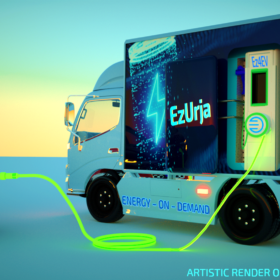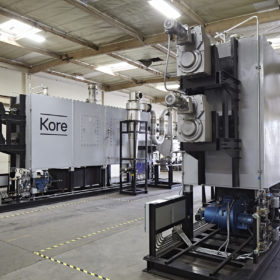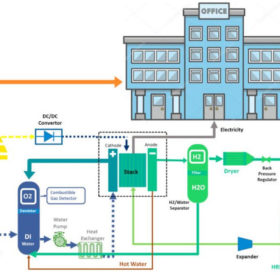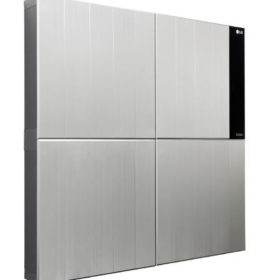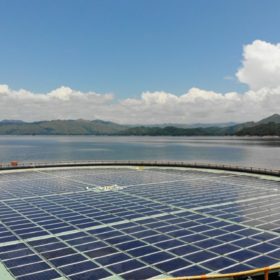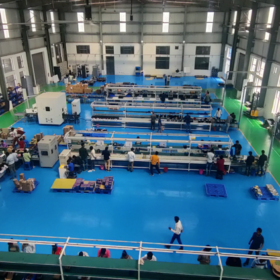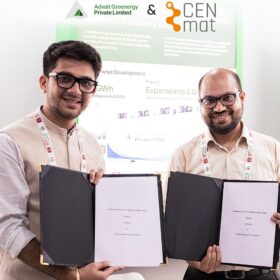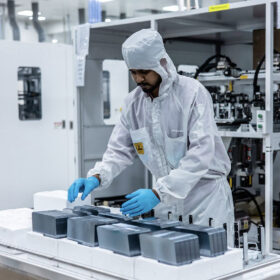ReNew Power signs deal for INR 50,000-crore renewables, storage project in Karnataka
Developer ReNew Power will invest INR 50,000 crore ($6.5 billion) in solar, wind, hybrid generation, battery storage, and green hydrogen projects over a period of seven years.
Sungrow equips Tata Power battery storage project in Ladakh
Chinese inverter maker Sungrow is supplying its SC2500UD power conversion system and ST2752UX liquid-cooled energy storage system to Tata Power Solar for an integrated battery energy storage project in Ladakh.
Solar/CNG/CBG powered EV charger with integrated battery storage
Energy management startup Ez4EV has introduced an electric-vehicle charging solution with integrated battery storage. The complete unit-in-a-box can be charged using electricity produced from solar, compressed biogas, and compressed natural gas.
New method could potentially produce hydrogen from biogas for $2/kg
Kore, an energy startup in California, has developed a new way to produce hydrogen from biogas, and is now poised to build a commercial-scale demonstration facility in Los Angeles. It said half of the carbon in the feedstock can be converted into gas, while the other half can be converted into solid elemental carbon char.
Cost comparison between lithium batteries, fuel cells, reversible solid oxide cells as storage for off-grid rooftop PV
Scientists in the United Arab Emirates have looked at how off-grid rooftop PV could be combined with batteries, fuel cells or reversible solid oxide cells for energy storage. The modeling assumed a typical commercial building in Los Angeles.
LG Energy Solution unveils new battery storage solutions, moves to LFP
South Korean battery manufacturer LG Energy Solution presented its latest innovations at the Smarter E event in Munich last week. It also announced its transition from nickel-manganese-cobalt (NMC) battery chemistry to lithium iron phosphate (LFP) in its future products.
Greenko starts work on 5.23 GW renewable storage project
Indian developer Greenko has begun construction of a hybrid energy storage project featuring 10.8 GWh of daily pumped storage, 3 GW of solar, and 550 MW of wind. It claims that it might be the world’s largest renewables-based storage project upon completion.
Tata Power to install EV charging infrastructure at Hyundai dealerships
Tata Power has signed an agreement to commission home chargers for EV owners and install its EZ Charge fast chargers (DC 60 kW) at Hyundai Motor India’s 34 electric vehicle dealer locations in 29 cities.
Small-scale floating PV with pumped hydro storage
Indian scientists have developed a system under which a pumped-hydro facility stores grid electricity during off-peak hours by pumping water to an upper reservoir. During peak hours, the system feeds the load, rather than taking power from the grid.
JLNPhenix Energy expands lithium battery capacity to 550 MWh/year
Noida-based manufacturer JLNPhenix Energy has expanded its lithium battery manufacturing capacity in India to 550 MWh/annum, with the addition of a 150 MWh/year plant in Maharashtra.


